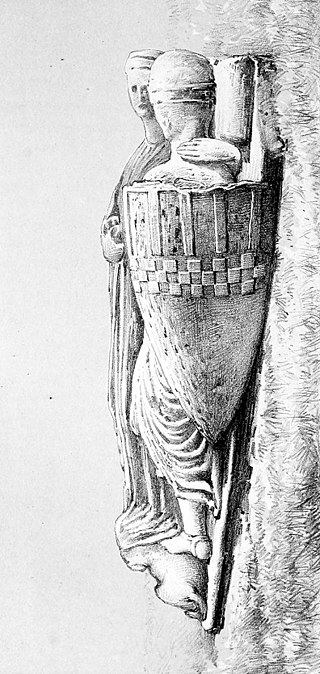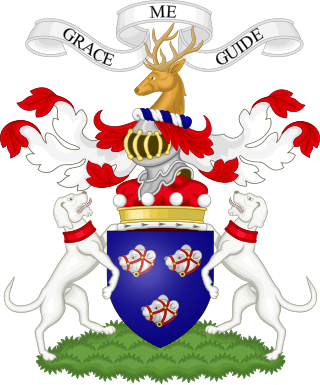
James Douglas, the 4th Lord of Dalkeith, was created the 1st Earl of Morton in 1458.

John Douglas, 2nd Earl of Morton died 9 September 1513 at the Battle of Flodden.

Sir John Keith, 1st Earl of Kintore PC (Scot), was a Scottish nobleman.

Clan Oliphant is a Highland Scottish clan.
George Gordon, 2nd Earl of Huntly was a Scottish nobleman and Chancellor of Scotland from 1498 to 1501.

Sir Robert Keith was a Scottish nobleman and a hereditary Great Marischal of Scotland.

Walter Bailloch, also known as Walter Bailloch Stewart, was distinguished by the sobriquet Bailloch or Balloch, a Gaelic nickname roughly translated as "the freckled". He was the Earl of Menteith jure uxoris.
Alexander of Menteith, a Scottish nobleman and member of the Stewart family, he was the Earl of Menteith.

Princess Joan Stewart, Countess of Morton, also called Joanna, was the daughter of James I, King of Scotland, and the wife of James Douglas, 1st Earl of Morton. She was known, in Latin, as the muta domina [mute lady] of Dalkeith.
Annabella of Scotland was a Scottish princess, a member of the House of Stewart, and by her two marriages Countess of Geneva and Countess of Huntly. Both of her marriages were annulled, the first without being consummated and the second on grounds of consanguinity.

Clan Forbes is a Highland Scottish clan from Aberdeenshire, Scotland.
Alexander Gordon, 3rd Earl of Huntly was a Scottish nobleman. He was a member of Parliament, a member of the Privy Council, a regent and Lieutenant of the kingdom.

Sir William Oliphant, Lord of Aberdalgie and Dupplin, was a Scottish magnate, knight and leader during the Wars of Scottish Independence.

William Keith, 4th Earl Marischal was a Scottish nobleman and politician.

Sir John Menteith of Ruskie and Knapdale was a Scottish nobleman during the Wars of Scottish Independence. He is known for his capture of Sir William Wallace in 1305 and later joined with King Robert I of Scotland and received large land grants in Knapdale and Kintyre for his service. He is described as "guardian" of the Earldom of Menteith, as his great-nephew Alan II, Earl of Menteith was a minor at the time of the death of Alan I, Earl of Menteith.
Sir Adam de Gordon, Lord of Gordon was a 14th-century Scottish baron.
Elizabeth Gordon, Heiress of Gordon, Scottish baroness and progenitress of the Gordon Earls and Marquesses of Huntly.
Alexander Seton, Lord Gordon was a Scottish baron, Lord of Parliament and progenitor of the Gordon Earls and Marquesses of Huntly.
Sir John de Keith, Marischal of Scotland, was a Scottish noble. He was a son of Hervey de Keith and Margaret de Douglas.

William Keith, 2nd Earl of Kintore, was a Scottish nobleman.










